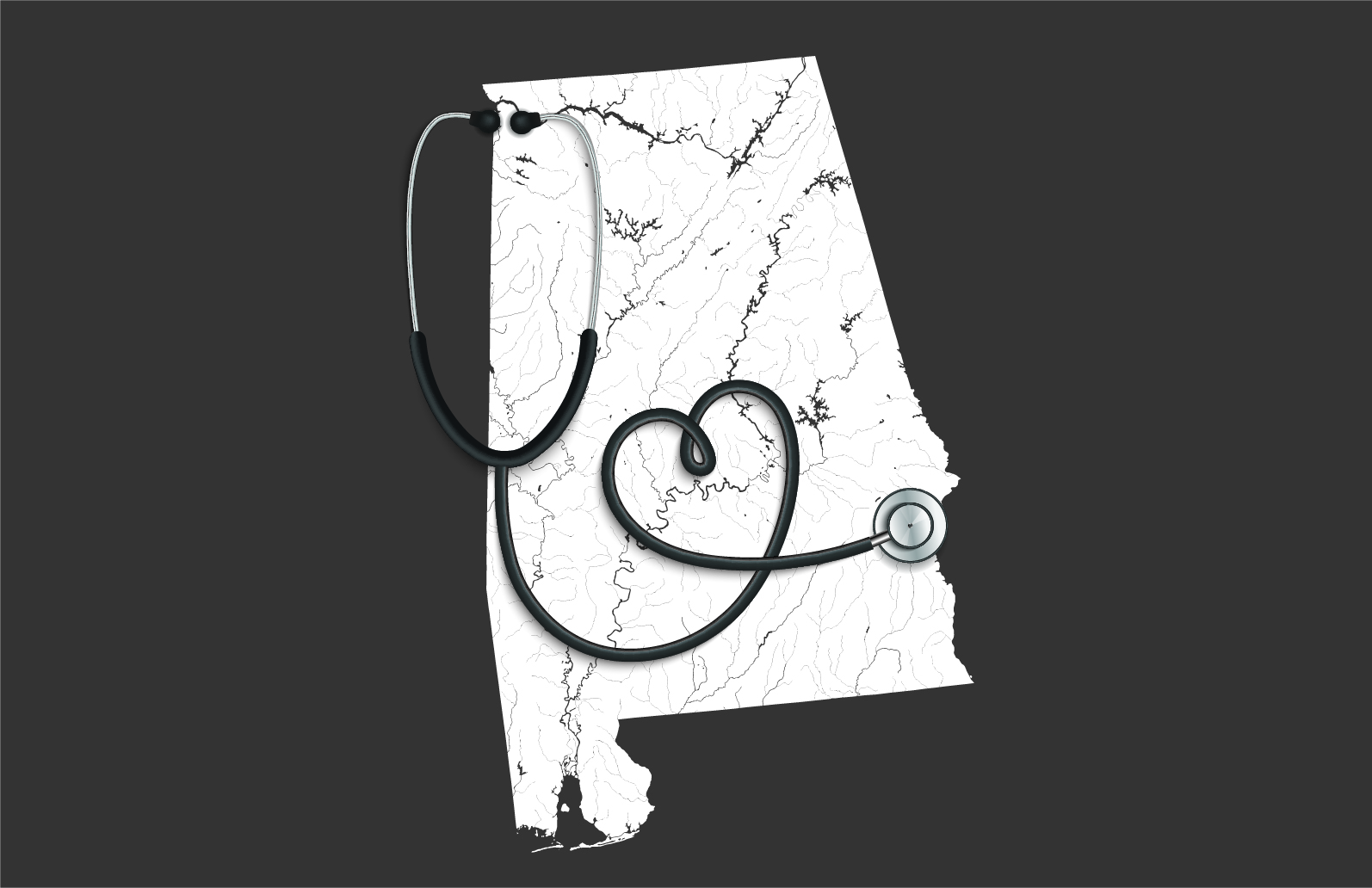People living in Alabama’s Black Belt counties have less access to physical health care, which is impacting their health, according to a report released Tuesday.
Researchers with the University of Alabama’s Education Policy Center found that physical access to health care is a luxury fewer and fewer rural Alabamians enjoy.
The report, titled “Health Care: A Key Challenge in Alabama’s Black Belt,” is the latest in EPC’s Black Belt 2020 series, and states that the Black Belt counties Lamar, Lowndes, Perry and Pickens, have no hospitals.
“The data suggests that black belt is largely underserved in terms of physical access to health care, and specifically it indicates that blackbelt residents lack physical access to health care systems,” said Jonathan Bowen, a graduate student and research associate at EPC, speaking with reporters on Monday. “In some cases, the closest hospital could be over an hour away, making it extremely difficult to get to a health care provider in a timely manner.”
The Education Policy Center defines the Black Belt as comprising of 24 counties. Of those, 17 have fewer than the statewide average of 3.9 hospital beds per 1,000 people, according to the report.
The report notes that as of February, seven rural hospitals have closed statewide, and transportation to hospitals elsewhere can be problematic for many.
“One Black Belt mayor, Jerome Antone, was recently hospitalized 65 miles away from his town of Georgiana,” the report reads.
Emily Grace, another EPC researcher and a co-author of the report, said that in their research they found that from 2008 to 2017, only seven Alabama counties saw a decrease in premature death rates, which is defined as deaths before the age of 70. Of those counties, four were Black Belt counties.
“But overall, Black Belt counties are fairly evenly distributed across this dataset,” Grace said. “Which suggests that this is a problem facing all of Alabama, regardless of rural, urban, Black Belt or not.”
Emily Jacobs, a graduate research assistant at EPC, told reporters Monday that the state of health care access for rural residents was tenuous before the coronavirus pandemic.
“Now, Alabamians who were already struggling to access health care are under more strain than ever,” Jacobs said.
Jacobs said that unlike Alabama, hospitals in states that chose to expand Medicaid were 84 percent less likely to close. Former Gov. Robert Bentley chose not to accept federal aid under the Affordable Care Act to expand Medicaid. Jacobs said a study by the University of Alabama at Birmingham found that if Alabama were to expand Medicaid, it would provide health care coverage for an additional 300,000 Alabamians.
“That same study also estimated that Alabama tax revenue would have enjoyed an additional $1.7 billion in added revenue,” Jacobs said.
“Robert Bentley’s choice not to take the ACA funding in 2014, when the federal government was offering such generous matching inducements, is easily the single worst decision made by an Alabama governor since George Wallace’s infamous stand in the schoolhouse door to bar African Americans from entering the University of Alabama in 1963,” said Stephen Katsinas, EPC’s director.
Sen. Doug Jones, D-Alabama, speaking with reporters during Monday’s briefing on the report, agreed with Katsinas, and said Bentley’s decision not to expand Medicaid was “the worst decision that we have seen and generations in this state.”
“And it was all for purely political reasons. Let’s just get that out on the table,” Jones said.
Alabama is one of the unhealthiest states in the country, and the economic and health outcome benefits from an expanded Medicaid were clear in 2014, Jones said.
“Robert Bentley famously told a group of legislators, back in 2013 or 2014, that he would refuse to do it because he was concerned about his reelection,” Jones said. “He was concerned about a primary challenge from the right, and he was not going to do it.”
Jones discussed his bill, which would give states that haven’t yet expanded Medicaid 100 percent reimbursement for the costs of doing so for three years, then would stair step that reimbursement down to five percent and then to 10 percent.
“And then to use that money and invest in our people. Invest in our health care,” Jones said. “Those are the kind of things that we should do.”
Rep. Kyle South, R-Fayette, told reporters during the briefing that the state should continue to focus on recruiting young health care professionals to work in rural areas “because we have a almost a crisis point of recruiting.”
South said one good thing that has come out of the COVID-19 pandemic is federal reimbursements for telemedicine, which has increased health care availability in those rural areas.
Jones said there needs to be more dialogue on the problem, and political partisanship needs to be put aside.
“At the end of the day we are still ranked low in terms of health outcomes. We are still ranked high in poverty,” Jones said. “We’ve got to figure out how to do that, to do something better than we’ve been doing for a while. We got to make sure that we can lift all boats.”





















































